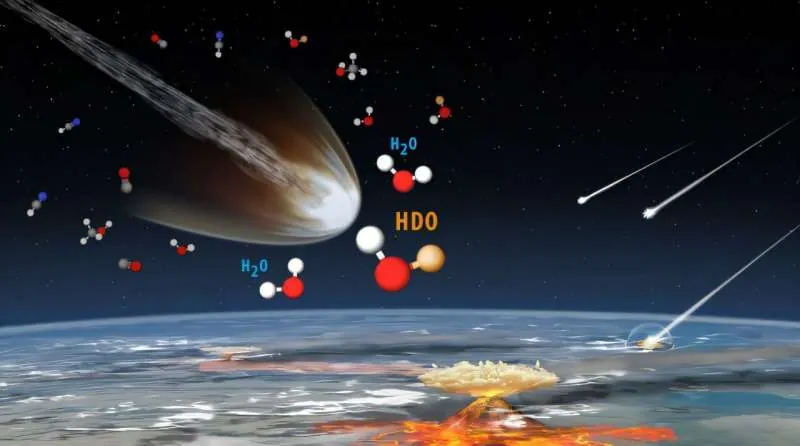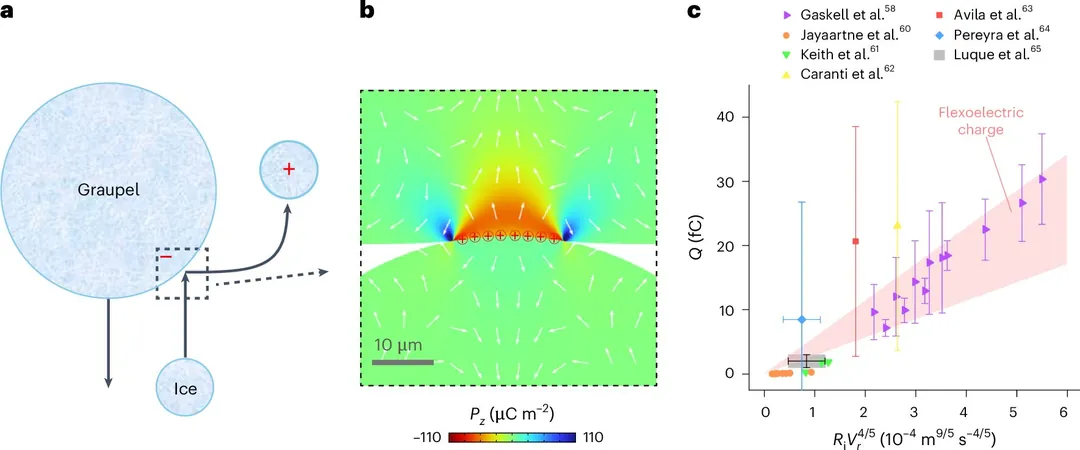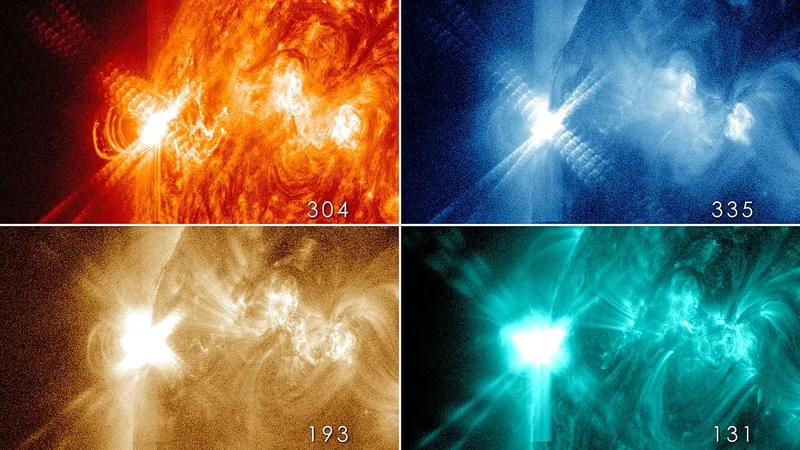
Did Comets Seed Earth with Water? New Evidence Points to Halley-Like Comets!
2025-08-22
Author: Sophie
A Cosmic Mystery Unveiled
Comets, the ancient relics of our solar system, hold secrets about its formative years. Recent research has focused on comet 12P/Pons-Brooks, akin to the legendary Halley's Comet, which may provide groundbreaking insights into the origins of Earth's water.
Understanding Earth’s Oceanic Waters
Did you know that Earth’s oceans aren’t just made up of ordinary H2O? There are intriguing variations, including semi-heavy water, where one hydrogen atom is swapped out for a deuterium atom—a heavier version. This creates a unique D/H ratio that can hint at the ultimate source of Earth’s waters.
The Debate on Comets as Water Deliverers
For years, astronomers have puzzled over whether comets could be the carriers of water for our planet. Previous observations showed that many comets had higher D/H ratios than Earth’s, casting doubt on their role as water suppliers. However, recent investigations into different comet families have sparked new excitement regarding their potential.
A Breakthrough with 12P/Pons-Brooks
In an exciting turn, a research team utilizing the Atacama Large Millimeter Array (ALMA) discovered the right D/H ratio in 12P/Pons-Brooks. This comet, observed through intricate spectral imaging, marks a significant finding in the ongoing search for water's origins on Earth.
Crucial Observations and Innovative Methods
In a dedicated observational period, scientists gathered comprehensive data on both regular and semi-heavy water production within the comet’s coma. The findings confirmed that sublimation from the comet’s nucleus, rather than chemical reactions within the coma, was responsible for emitting these vital water types.
The Bigger Picture: A Cosmic Connection?
ALMA’s spatial resolution offered groundbreaking insights, marking the first spatial data collection for D/H ratios in a Halley-type comet. Researchers speculate that all comets may share a common origin. If true, this could change our understanding of their classifications and interactions throughout the solar system’s history.
Looking Ahead: The Need for More Data
While this new research sheds light on the potential of comets as Earth’s water bearers, it also underscores the vast unknowns surrounding these celestial travelers. Future data collection is critical in further unraveling the mysteries of our cosmic neighborhood and refining our understanding of its history.
Conclusion: Comets - More Than Just Spectacular Sky Shows
These enigmatic visitors may not only illuminate our skies but also connect to the very essence of life on Earth. As research progresses, the tale of comets could transform from mere astronomy into a pivotal chapter in the story of our oceans.









 Brasil (PT)
Brasil (PT)
 Canada (EN)
Canada (EN)
 Chile (ES)
Chile (ES)
 Česko (CS)
Česko (CS)
 대한민국 (KO)
대한민국 (KO)
 España (ES)
España (ES)
 France (FR)
France (FR)
 Hong Kong (EN)
Hong Kong (EN)
 Italia (IT)
Italia (IT)
 日本 (JA)
日本 (JA)
 Magyarország (HU)
Magyarország (HU)
 Norge (NO)
Norge (NO)
 Polska (PL)
Polska (PL)
 Schweiz (DE)
Schweiz (DE)
 Singapore (EN)
Singapore (EN)
 Sverige (SV)
Sverige (SV)
 Suomi (FI)
Suomi (FI)
 Türkiye (TR)
Türkiye (TR)
 الإمارات العربية المتحدة (AR)
الإمارات العربية المتحدة (AR)